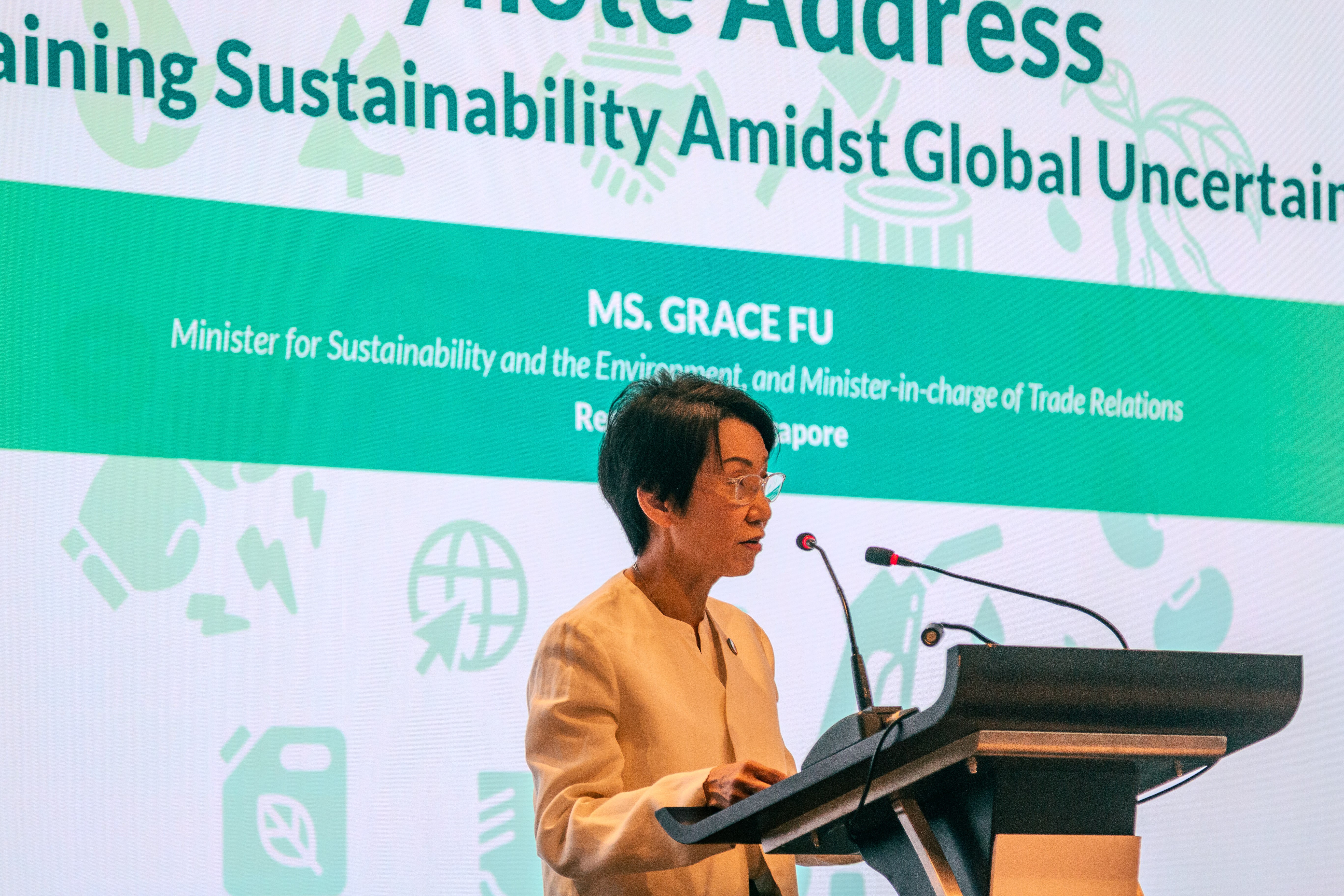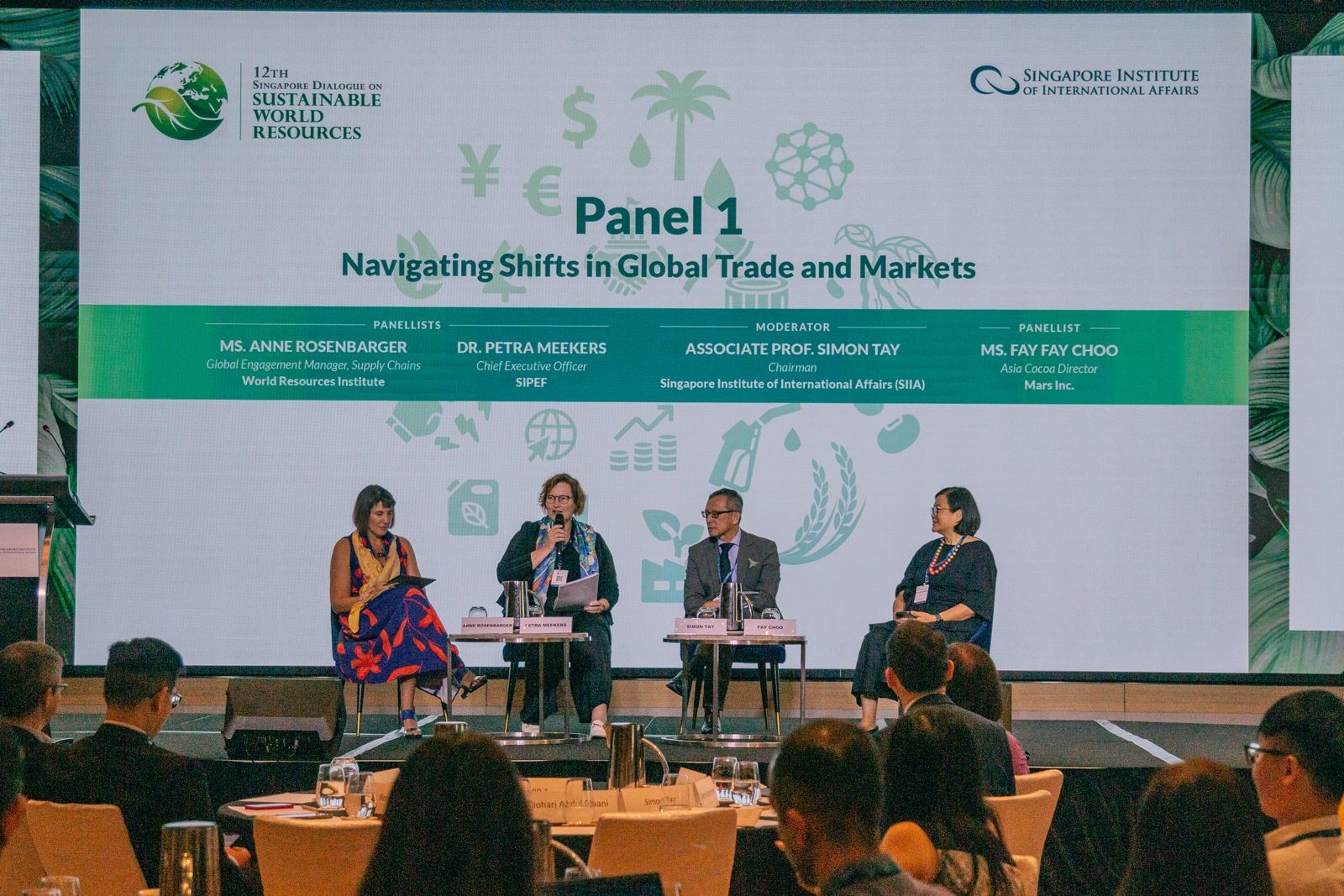
Southeast Asia must strengthen regional cooperation in addressing climate change as protectionism is rising, and trade barriers and supply chain disruptions becoming more frequent, said Singapore’s Minister for Sustainability and the Environment Grace Fu.
Countries have been “taking their foot off in climate action”, she said during the 12th Singapore Dialogue on Sustainable World Resources on May 28. It was organized by the Singapore Institute of International Affairs.
“Political support for decarbonization is losing momentum and climate finance is becoming more elusive,” Fu said. “Yet, we find ourselves confronted with an undeniable fact: climate change is here, and now.”
Southeast Asia has seen intense flooding and sweltering heatwaves in the past two years. Floods during the 2024-25 monsoon season hit Indonesia, Malaysia and Thailand, while heatwaves engulfed Jakarta and Manila early this year, with heat indexes reaching 45 C in some parts of the Philippines in April.
The region is among the world’s largest producers of agricultural commodities, and sustainable agribusiness and forestry is key in climate action and resource conservation.
Malaysia’s Minister of Plantation and Commodities Johari Abdul Ghani said that to meet rising demand for palm oil in a sustainable manner, the country’s palm oil industry has to satisfy ever-changing consumer preferences around sustainability.
ALSO READ: ASEAN ‘indispensable’ to region
With the European Union proposing a wide-ranging ban on imports of agricultural products — such as rubber and palm oil — sourced from deforested areas under its EU Deforestation Regulation (EUDR), Johari said that Malaysia is ready to comply.
The Malaysian Sustainable Palm Oil certification can be used as a primary compliance tool in meeting international sustainability standards, he added, noting that his country also committed to a no-deforestation policy in 2023.
“The only way forward is to increase yield without land expansion, adhering to sustainable practices as well as ensuring transparency and traceability,” Johari said.
Malaysia has also achieved many significant developments in sustainability in the palm oil sector, with many palm oil by-products now used to generate clean energy in terms of biomass, biogas and biofuels, he said. And as the global aviation industry starts to decarbonize, Malaysia is now looking into using waste cooking oil for the production of sustainable aviation fuel.

“The government envisions the palm oil industry becoming a significant producer of renewable energy in Malaysia,” Johari added.
At a time of “global question marks”, agriculture is now often at the center — and the initial target — of many trade disputes, said Anne Rosenbarger, global engagement manager of supply chains at World Resources Institute.
Agriculture is “super integrated into global supply change and very sensitive to all of these shifts… (and is) highly influenced by these big shifts in the climate,” she said.
Firms have to move toward integrated systems thinking in order to reach shared goals, Rosenbarger said. “(We need to) move away from thinking on singular issues and requirements or in terms of absolutes or opposites.”
READ MORE: Innovative model for greater regional resilience and promotion of global stability
Smallholders are key to building a modern, inclusive and resilient supply chain — one that can handle the uncertainties in geopolitics, economics and climate.
“We have a fundamental existential question here, with regard to our food security and taking care of the environment that sustains us,” said Choo Fay Fay, Asia Cocoa director at food giant Mars.
Choo said the US tariffs have a big impact on regional cocoa production, because 25 percent of Indonesia and Malaysia’s cocoa’s production are exported to the US.
“There is a very strong mutual interest from both sides that ensures we have tariffs that support economic prosperity, that create jobs and provide for food security,” she said.
And while other trade regulations such as the EUDR play a catalyst role in moving sustainability forward, how much of an impact it will have is dependent on whether countries leverage this opportunity, said Rosenbarger. “The EUDR is a bit of a test to see if other nations will follow suit with similar policies.”
The EU’s anti-deforestation rules should be seen as a transformative framework in sustainability reporting and disclosure to bring smallholders into a sustainable supply chain, said Petra Meekers, CEO at Belgian agro-industrial group SIPEF.
But Europe is not going to change the volume of trade. “It’s such a small drop in the ocean in terms of its demands,” said Meekers. “We really have to look at that transformative space which (the EUDR) is trying to bring, and I think that is a dialogue to continue to have.”
The writer, based in Singapore, is a freelance journalist for China Daily.


